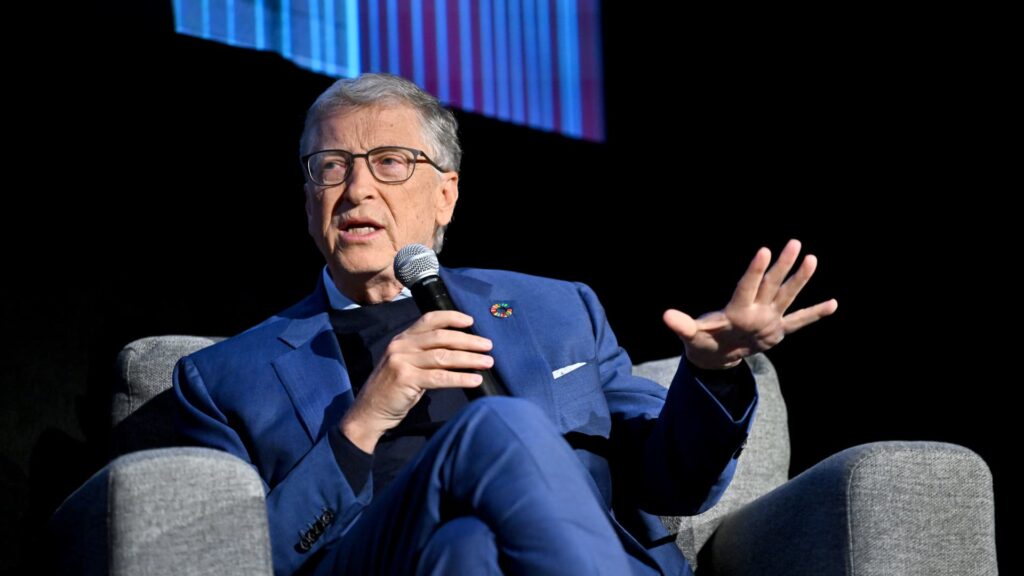The Future of Work: AI’s Expanding Role in Our Lives
Artificial intelligence is on the verge of transforming our world in profound ways, a revelation highlighted by tech visionary Bill Gates. In a recent appearance on NBC’s "The Tonight Show" with Jimmy Fallon, Gates suggested that within the next decade, most tasks currently performed by humans may soon be handled by AI, ultimately making expert services more accessible and affordable.
The Rise of "Free Intelligence"
Gates expressed optimism about the potential of AI, coining the term "free intelligence" to describe the new era we’re entering. This shift is expected to bring about significant advancements in AI technologies that will touch every corner of our daily lives. From enhancing medical treatments and diagnoses to providing high-quality education through virtual tutoring, the benefits are enormous.
"It’s very profound and even a little bit scary," Gates shared during a discussion with Harvard professor Arthur Brooks. He emphasized the rapid pace of AI’s development and the absence of an upper limit to its growth, stirring varied opinions on how humans will coexist with these powerful tools.
The Debate on AI and Employment
The conversation surrounding AI’s impact on the workforce is multifaceted. While some experts argue that AI will improve human efficiency rather than replace workers, others caution that it could trigger significant changes in job landscapes across various sectors. Mustafa Suleyman, CEO of Microsoft AI, warns that while AI tools will enhance human intelligence temporarily and spur economic growth, they may ultimately lead to job displacement.
In the middle of this debate, Gates maintains that certain roles—like those of doctors and teachers—will always require a human touch. He humorously remarked that people likely wouldn’t want to watch machines play baseball, reinforcing the notion that some aspects of life will remain uniquely human.
Opportunities Amidst Challenges
Despite valid concerns about AI—such as the risk of misinformation and reliance on error-prone algorithms—Gates believes that the opportunities presented by AI far outweigh the risks. In his blog, he highlighted the potential of AI to develop life-saving medical treatments and innovative solutions to pressing challenges like climate change and education accessibility.
Reflecting on the current AI landscape in September 2024, Gates expressed a keen interest in launching an "AI-centric" startup if he were starting anew. "Today, somebody could raise billions of dollars for a new AI company based on just a few sketch ideas," he noted, encouraging the next generation of innovators to embrace the frontier of AI possibilities.
Looking Back on Predictions
Remarkably, Gates foresaw AI’s transformative potential nearly a decade ago. During a 2017 event at Columbia University, he identified artificial intelligence as the industry he would focus on if he had to restart his career. He noted significant milestones in AI, such as Google’s DeepMind defeating human players in the game of Go.
In hindsight, even Gates was taken aback by AI’s rapid evolution. An ambitious challenge to OpenAI to produce a model capable of acing a high school AP Biology exam resulted in major advancements in just a few months—a feat Gates described as one of the most important technological breakthroughs since the graphical user interface.
Conclusion: Embracing the Future
As we stand at the crossroads of technology and humanity, it’s essential to navigate the challenges AI presents with a blend of caution and enthusiasm. Gates’s insights remind us that while AI offers a wealth of opportunities, it also requires us to reconsider our roles and responsibilities in an increasingly automated world.
The AI Buzz Hub team is excited to see where these breakthroughs take us. Want to stay in the loop on all things AI? Subscribe to our newsletter or share this article with your fellow enthusiasts.




